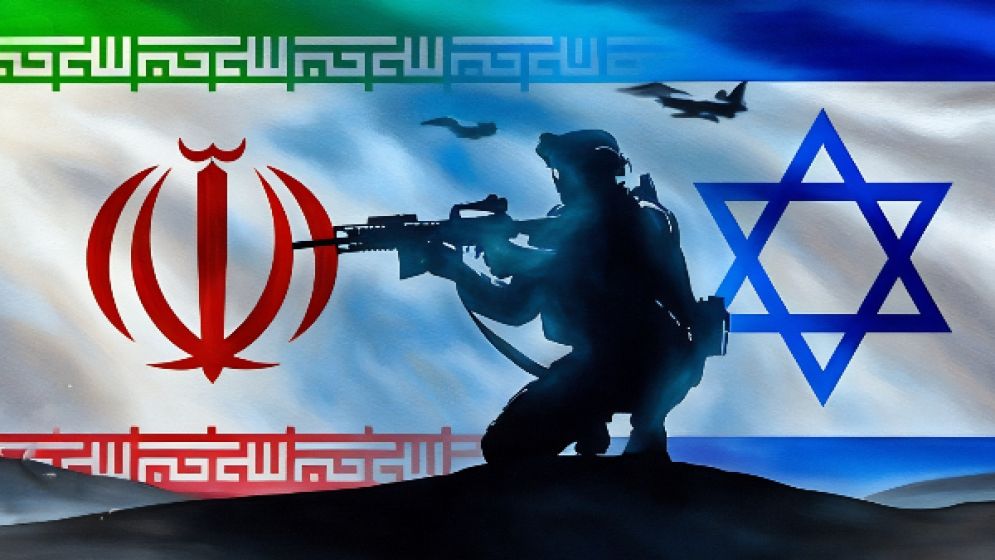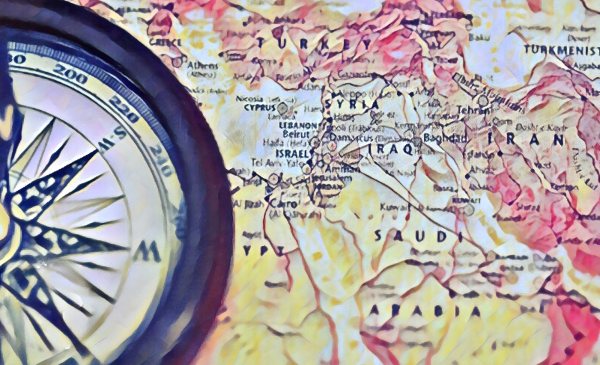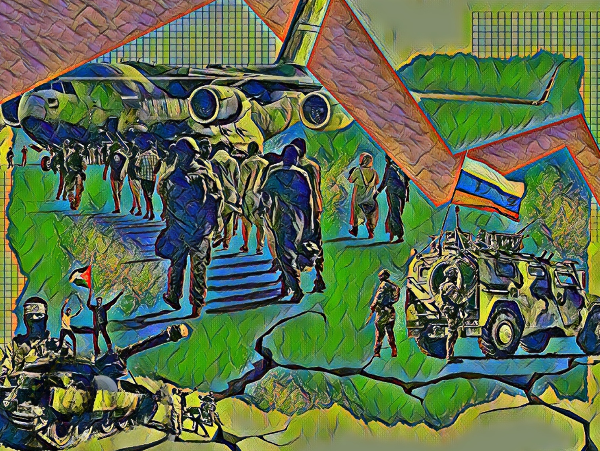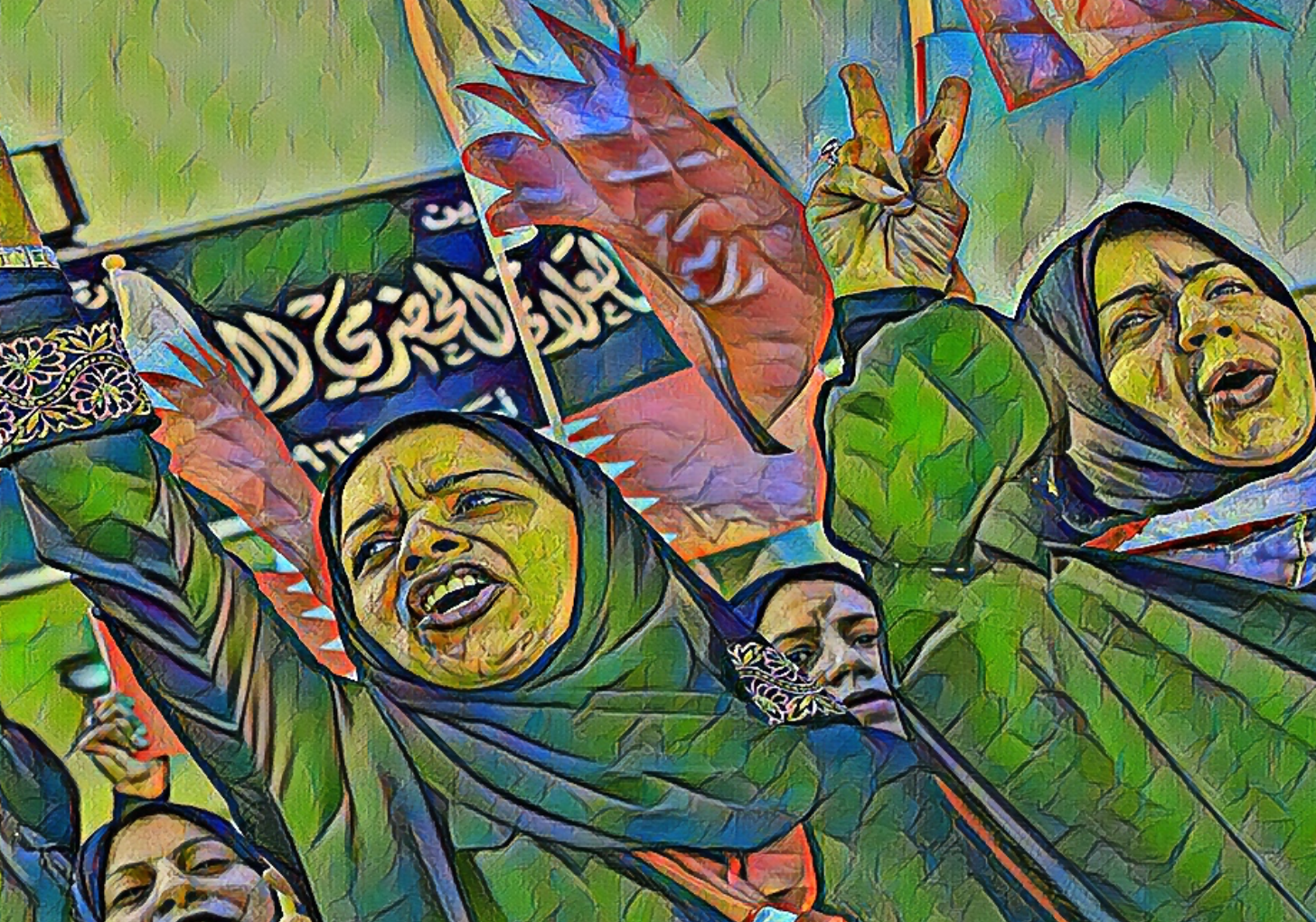Lost opportunities? A look at the geopolitical factors shaping the Arab world

The pager and walkie-talkie explosions in Lebanon on September 17-18 this year represented a significant escalation in the Middle East, overshadowing the previous eleven months of intermittent clashes between Israel and Hezbollah.
Even Leon Panetta, the former CIA director, referred to the incident as "terrorism."
Following Hamas's unprecedented attack on Israel from the Gaza Strip on October 7, 2023, Israel retaliated with a devastating ground invasion of Gaza.
These ongoing assaults have resulted in the deaths of over 41,500 Palestinians, predominantly women and children.
Organizations like Amnesty International and Human Rights Watch have characterized Israel's actions as "genocide," and various media outlets have highlighted the Israeli government's apparent goal of depopulating Gaza.
Despite this ethnic cleansing, the expected reactions from the international community have not materialized.
While there have been condemnations of Israel's actions from countries in the Global South and the Middle East at the United Nations, the Western response has largely leaned towards either neutrality or outright support for the actions deemed genocidal.
Western countries are already disproportionately represented on the United Nations Security Council, often using their position to veto certain resolutions to their advantage.
The United States has consistently exercised this power on behalf of Israel since October 7, preventing the implementation of calls for a permanent ceasefire in Gaza.
As a result, Israel continues its aggressive actions against Palestinians not only in Gaza but also in the occupied West Bank, where over 500 Palestinian fatalities have been reported.
With the UN appearing powerless to intervene, many fear the conflict could spread throughout the region, a concern that now seems to be coming to fruition.
Following the pager and walkie-talkie explosions in Lebanon, Israel has launched ongoing airstrikes across its northern neighbor's territory, with Beirut suffering significant damage.
In recent days, Israel has assassinated several senior Hezbollah leaders in Beirut, including Hassan Nasrallah, who had led the militant group for nearly three decades.
While Nasrallah's death is a substantial blow to Hezbollah, the organization appears more resolute than ever, with cross-border attacks increasing rather than diminishing.
Hezbollah missiles are now even targeting major cities like Tel Aviv, highlighting the failure of Israel’s strategy of eliminating leaders, as such actions do not necessarily diminish the group's capabilities or morale.
Israel's history of targeted killings dates back to its founding in 1948, beginning with Count Folke Bernadotte, a Swedish diplomat serving as the UN mediator during the first Arab-Israeli conflict.
He was assassinated by the Zionist paramilitary group Lehi while performing his duties in Jerusalem. Notably, the former paramilitary groups Irgun, Lehi, and Haganah eventually merged to form the Israeli Defense Forces (IDF).

Historical context of Middle-east
frictions
The 1947 UN resolution for the partition of Israel and Palestine was never implemented due to Israel's violations. Consequently, more than 750,000 Palestinians were forcibly displaced from their homes by various Zionist militias.
After the Arab armies were unable to defeat Israel in 1948, many Palestinians found themselves compelled to settle in Gaza and the West Bank.
Despite this dire situation, Arab unity played a significant role in addressing the Palestinian issue. Although the Arab leaders had their ideological differences, they shared a strong opposition to Zionism, which fostered solidarity among them.
Their collective determination to resist European colonization of Palestinian land drew them together. Over the years, leaders like Gamal Abdel Nasser championed pan-Arabism—promoting Arab unity to combat Zionist occupation.
This solidarity endured for a time until 1967, when Israel launched the Six-Day War, delivering a severe blow to its Arab adversaries. In addition to Gaza and the West Bank, Israel occupied the Egyptian Sinai Peninsula and the Syrian Golan Heights, significantly expanding its territorial control and weakening Arab resolve to continue the struggle.
For Nasser, this was a turning point; he passed away in 1970 at the age of 52. Following Nasser's death, the momentum of pan-Arabism began to wane, as Gulf states like Saudi Arabia and the UAE increasingly cooperated with the West on various geopolitical matters.
In 1973, the new Egyptian leader, Anwar Sadat, attempted to reclaim the Sinai during what became known as the Yom Kippur War. Although the war ended in a relative military stalemate, it was later diplomatically resolved with US mediation.
Sadat agreed to return the Sinai to Israel on the condition of a permanent peace treaty. This led to the signing of the Camp David Accords in 1978, under the supervision of US President Jimmy Carter.
Egypt regained its lost territory, but Sadat compromised the Palestinian cause in exchange for a ceasefire with Israel. Today, under President Sisi, Egypt is viewed as a staunch ally of the United States.
The Gulf Kingdoms in today’s Middle East host numerous US military bases throughout the region. The petrodollar system has enriched these Arab nations, allowing them to receive military protection from the US in return.
Essentially, the Gulf Kingdoms supply oil to the US, which in turn provides advanced military equipment from the Pentagon. Israeli Prime Minister Benjamin Netanyahu’s speech at the UN this September illustrates the geopolitical landscape in the Middle East quite clearly.
During his address, he displayed two placards to appeal to the Gulf Kingdoms and India. The placard labeled ‘THE BLESSING’ depicted India, Saudi Arabia, Egypt, Sudan, the UAE, and Jordan in green, while the one titled ‘THE CURSE’ showed Iran and its allies (Iraq, Syria, Lebanon) in black.
This suggests that Iran may be the only major power in the region that Palestinians can count on. The Arab nations in green signed the Abraham Accords in 2020, a peace agreement aimed at normalizing relations with Israel.
Even before October 7 of last year, the Palestinian cause was becoming increasingly marginalized due to this normalization.
‘THE BLESSING’ reflects Netanyahu’s vision for the India-Middle East-Europe Corridor (IMEC), a trade route favored by the US as a counter to China’s Belt and Road Initiative.
For those wondering why Arab countries struggle against Israel, the answer is that many have essentially aligned themselves with it.

The conflict within
The harsh reality is that the Saudi regime has led a coalition of Gulf countries to wage war in Yemen for a decade, yet they have not taken military action to support the Palestinians against Israel.
The leaders of these Kingdoms perceive Iran as the more immediate threat, which explains their financing of jihadist groups in Syria to oppose Bashar al-Assad, a key ally of Iran.
The Iranian military and Russian air force have helped Assad suppress the rebel forces, consolidating his power.
However, Syria, much like Yemen, is in ruins and occupied by multiple foreign powers, including the US, Russia, and Turkey. Simultaneously, Israel lobbies US politicians through groups like AIPAC and the ADL to ensure pro-Israeli policies are enacted at the White House.
Israel also seeks to maintain a permanent US presence in the Gulf region, as highlighted in Janice J. Terry’s book, Foreign Policy in the Middle East: The Role of Lobbies and Special Interest Groups.
Given the current status quo, it is nearly impossible for the Gulf Kingdoms to oppose Israel militarily, which underscores the effective communication and influence Israel has within Western societies.
The Holocaust continues to significantly shape feelings of guilt among many in the West, allowing Israel to leverage this sentiment by labeling anyone who criticizes the Jewish state as "antisemitic."
This term has been weaponized to such an extent that its original meaning has been distorted in public understanding.
It's important to note that Arabs, like Jews, are also Semites, and Arabic is a Semitic language, just like Hebrew. However, Zionist discourse has skillfully framed the narrative to suggest that only prejudice against Jewish communities qualifies as antisemitism.
Meanwhile, Muslims face discrimination in America's and Europe's soft power sectors—such as in media, public perception, the film industry, and music.
The media undeniably plays a significant role in shaping opinions on these issues. Conspiracy theorists often claim that powerful Jewish lobbyists control media corporations in the West, dictating what information the public receives.
If this is accurate, it highlights how effectively Jewish communities communicate their interests to the elites in Washington, London, Paris, and Berlin—something that Muslims have yet to achieve.
While many Muslims around the world are diligent workers, Jews seem to embrace the motto "Knowledge is power" more fervently.

Why Israel holds significant sway
over others
In today’s digital age, Israelis have excelled in harnessing Artificial Intelligence (AI). Israel reportedly operates about 30 satellites—an impressive number for such a small nation.
Notably, its reconnaissance satellites are highly effective, capable of scanning the entire Middle East to identify targets, providing Israel with a significant advantage over its regional adversaries.
Israel's precision-guided drones and missiles have proven to be exceptionally lethal and efficient, adept at striking multiple targets while conserving resources.
The Lavender machine is a particularly destructive AI tool developed by Israelis, responsible for significant damage to urban infrastructure in Gaza and large-scale civilian casualties.
The IAI Harop drone is another well-known lethal weapon created by Israel and subsequently exported to countries such as India, Azerbaijan, Turkey, Singapore, Germany, Morocco, and the Netherlands.
During the 2020 Karabakh war, the Azerbaijani army, equipped with Israeli drones and technology, successfully defeated Armenian forces armed with outdated Soviet weapons.
Within the Muslim community, Shias are particularly noted for their emphasis on research and innovation, as demonstrated by Iran's ballistic missile programs.
Recently, Iran's Shahed 131 and Shahed 136 drones have gained global attention, especially due to their extensive use by the Russian military in strikes against Ukrainian infrastructure.
Additionally, Iran has established a network of armed groups across the Middle East, referred to as the "Axis of Resistance," primarily based in Iraq, Syria, Lebanon, northwestern Yemen, and a small presence in Bahrain, which is not surprising given its Shia majority. However, despite the numerical growth of this resistance, its size often fails to deter Israeli or American aggression.
A significant reason for this ineffectiveness is the lack of air power and inadequate air defense systems among these groups.
Furthermore, both they and Iran have faced heavy sanctions from the US for years, which hampers Iran’s ability to acquire the necessary components for developing advanced weapons for itself and its allies.
While military collaboration with Russia may offer some long-term improvements, the resistance currently confronts substantial challenges in both economic and military domains.
Sanctions create harsh economic conditions, leading to widespread poverty. This situation allows foreign intelligence services like the CIA and Mossad to exploit the desperation of individuals, offering not only financial incentives but also protection.
In some cases, Mossad is said to leverage the legitimate grievances of specific Arab communities, such as the Kurds in Iran, for its own strategic advantage. As the saying goes, "The enemy of your enemy is your friend."
In the diplomatic arena, Israel holds a significant advantage over Iran and the resistance. Despite social media exposing the brutal actions of the IDF in Gaza, Lebanon, and the West Bank, politicians in the West continue to support Israel.

Moral hypocrisy of the West
Many criticize the glaring hypocrisy, double standards, and lack of moral consistency in Western responses—while condemning Russia’s actions in Ukraine, they simultaneously endorse Israel’s ethnic cleansing in Gaza. Compounding this issue, Israel remains one of the leading exporters of arms and ammunition to the West and India. With a substantial foreign market and no sanctions imposed for its regional aggressions, Israel’s wartime economy continues to thrive for the time being.
The Balfour Declaration, issued in 1917, articulated intentions for a Jewish homeland in the Middle East and was a pivotal moment that has influenced today's world.
Following the defeat of the Ottomans in World War I, their empire collapsed, and Palestine, which was part of that empire, came under British control.
With the British emerging victorious over the Axis powers, they opted to partition the Middle East by drawing new borders, much like they did in South Asia.
The area now known as "Israel" had a small population of Jewish migrants from Europe living alongside a Muslim majority. Although there were also Arab Jews in the region, the land was designated as the "national home for the Jewish people," according to Arthur Balfour's commitment to Lord Rothschild.
As West Asia faces the possibility of a regional war, it is crucial to understand why Arabs continue to struggle against contemporary European colonization.
Recognizing internal shortcomings may be the first step toward establishing a stronger deterrent for the future.
—-
Chowdhury Taoheed Al-Rabbi is a freelance writer

